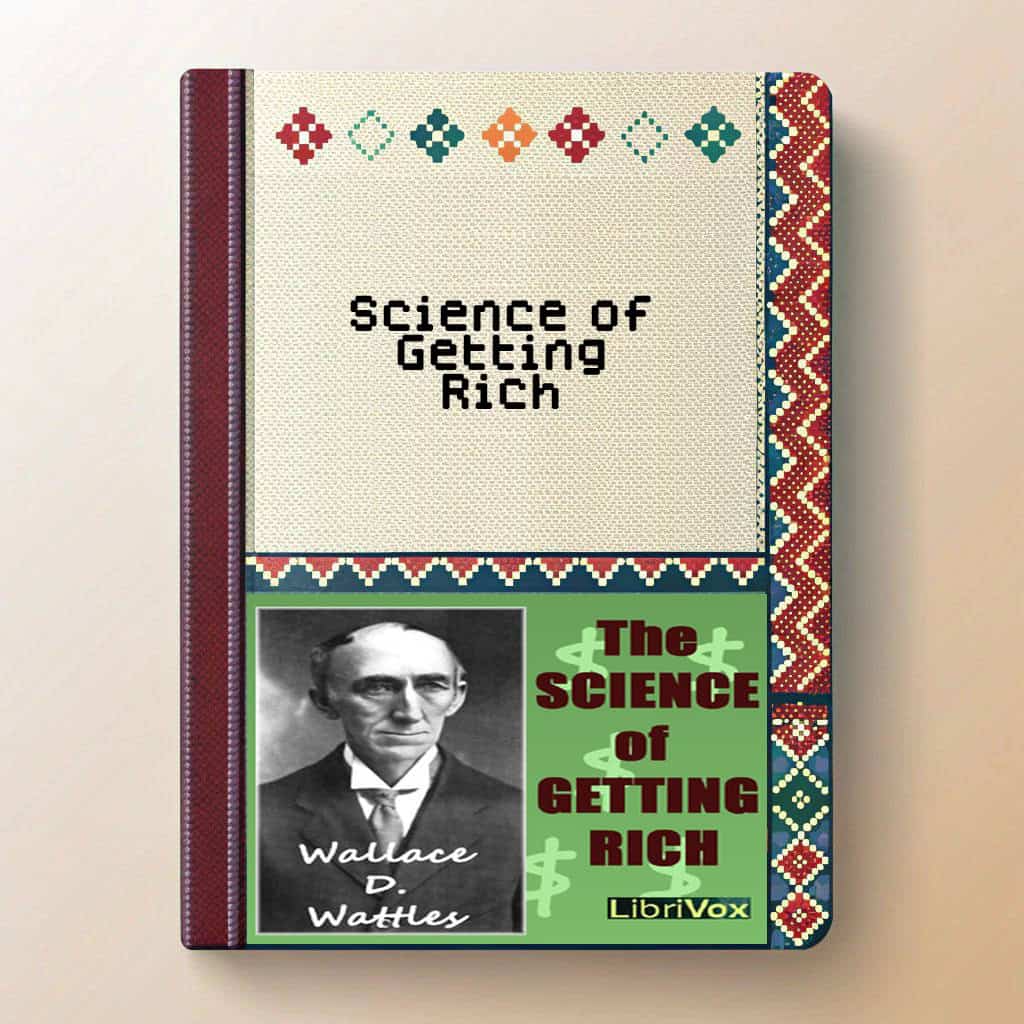Audiobook Sample
Listen to the sample to experience the story.
Please wait while we verify your browser...
- Title: Science of Getting Rich
- Author: Wallace D. Wattles
- Narrator: Diana Majlinger
- Length: 02:08:25
- Version: Abridged
- Release Date: 01/01/2016
- Publisher: LibriVox
- Genre: Self Development, Health & Wellness
- ISBN13: SABLIB9783601
Dear seekers of wisdom and wealth,
As a literature professor who has spent decades dissecting narratives across cultures and mediums, I approached Wallace D. Wattles’ *The Science of Getting Rich*, narrated by Diana Majlinger, with a blend of curiosity and skepticism. Published in 1910, this self-development classic promises a systematic approach to wealth creation grounded in New Thought philosophy—a movement I’ve long studied for its intriguing blend of optimism and metaphysics. What fascinates me most is how this audiobook experience, freely available through LibriVox, transforms Wattles’ century-old text into a resonant, almost meditative journey. Listening to Majlinger’s narration, I found myself reflecting on my own encounters with abundance, ambition, and the power of thought—personal threads that wove naturally into this review.
This reminds me of when I was a visiting professor in Tokyo, immersed in the works of Haruki Murakami. Reading *Kafka on the Shore* in dual languages revealed how narrative perception shifts with cultural context—much like how Wattles’ ideas feel both timeless and distinctly American in their rugged individualism. That year, I’d sit by the Sumida River, earbuds in, letting audiobooks wash over me as I pondered how stories adapt across forms. Similarly, my Berkeley seminar on *Cloud Atlas*—where we compared its print, digital, and audio iterations—taught me how a medium can amplify or soften a text’s impact. With *The Science of Getting Rich*, the audiobook format elevates Wattles’ direct prose into something intimate, urging listeners to internalize its principles as if whispered by a mentor.
Wattles’ core argument rests on a provocative metaphysics: a ‘Thinking Stuff’ permeates the universe, responsive to our focused thoughts and gratitude. Through 17 concise chapters, he outlines a ‘science’ of wealth—think clearly, act purposefully, and give more in value than you take. The ‘Law of Increase’ struck me as particularly compelling, echoing Transcendentalist ideals I’ve explored in Emerson’s essays. Yet, it’s the emphasis on gratitude that lingered, a concept I’ve seen mirrored in Eastern philosophies during my studies of Japanese literature. Listening to Majlinger recite lines like ‘The grateful mind is constantly fixed upon the best,’ I recalled a rainy afternoon in Kyoto, sipping matcha and journaling about small blessings—a practice that unknowingly aligned with Wattles’ teachings.
Diana Majlinger’s narration is the heartbeat of this free audiobook. Her voice, steady and warm, carries a clarity that suits Wattles’ no-nonsense style. There’s a quiet conviction in her delivery, as if she’s internalized the text’s faith in abundance. The audio quality, crisp despite its public domain origins, enhances the listening experience, making it feel less like a lecture and more like a conversation. At just over two hours, the duration is digestible—perfect for a commute or a reflective evening. Yet, I found myself pausing often, not due to fatigue, but to mull over Wattles’ assertions. Majlinger’s pacing invites this introspection, though I occasionally wished for a touch more dynamism to mirror the text’s bold claims.
Through a cultural lens, *The Science of Getting Rich* reveals both its strengths and limitations. Its empowering message—wealth as a product of mindset and action—resonates in our era of mindfulness and positive psychology. The audiobook’s accessibility, offered free by LibriVox, democratizes Wattles’ vision, much like the open-source ethos of digital humanities I champion. However, the book’s insistence on individual thought as the sole driver of success feels reductive. Teaching in urban classrooms, I’ve seen how systemic barriers—poverty, discrimination—often outweigh personal will. Critics rightly note this gap, and Wattles’ ‘Thinking Stuff’ teeters on magical thinking, lacking the empirical rigor I’d demand in academic discourse. Still, its practical advice—focus, act, persist—offers a toolkit for self-development that’s hard to dismiss.
Comparisons naturally arise with other New Thought works. Napoleon Hill’s *Think and Grow Rich* builds on Wattles’ foundation with real-world anecdotes, while Rhonda Byrne’s *The Secret*—which credits Wattles as inspiration—leans harder into visualization. James Allen’s *As a Man Thinketh* shares its introspective tone, but Wattles stands apart for his pragmatic brevity. Listening to Majlinger’s rendition, I felt echoes of these texts, yet the audiobook’s immediacy carved its own niche. It’s a bridge between philosophy and practice, ideal for those drawn to self-help’s promise of agency.
I’d recommend this audiobook to anyone curious about the roots of modern wealth philosophies or seeking a motivational lift. Fans of self-development and wellness genres will find its clarity refreshing, especially in Majlinger’s capable hands. It’s not for skeptics demanding data-driven arguments—nor should it be. This is a text of belief, best savored with an open mind. For me, it sparked a reflection on abundance beyond money—knowledge, connection, purpose—echoing a lecture I once gave on digital storytelling’s power to enrich lives.
What fascinates me most is how this listening experience rekindled a memory from my Yale days: a professor reading Emerson aloud, his voice trembling with conviction. Wattles, through Majlinger, evokes that same fervor. This audiobook isn’t just a relic of 1910—it’s a living dialogue, urging us to think, act, and grow. Whether you buy its ‘science’ or not, its echoes linger, much like a well-told story.
With literary appreciation and a nod to abundance,
Prof. Emily Chen
Prof. Emily Chen

